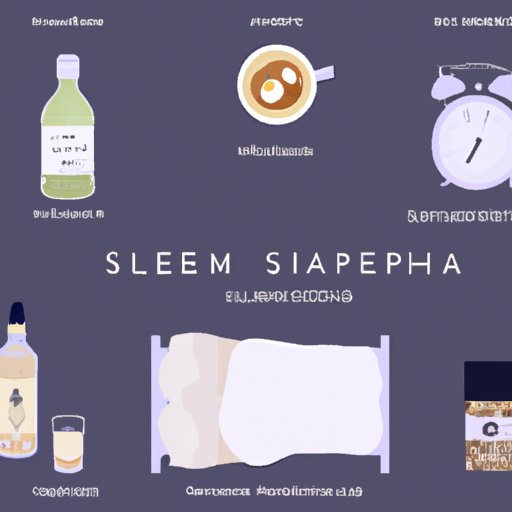
Introduction
Do you struggle with sleepless nights? You’re not alone. According to a report by the American Sleep Association, 50-70 million American adults experience sleep-related problems. Difficulty falling asleep can be exhausting, frustrating, and detrimental to overall wellbeing. The good news is that there are practical tips and tricks that can help you fall asleep faster and stay asleep longer. In this article, we’ll explore 6 effective ways to make yourself fall asleep.
Create a Relaxing Bedtime Routine
Creating a relaxing bedtime routine is key to preparing your mind and body for sleep. Your routine can consist of any ritual or habit that helps you wind down from the day and signal to your brain that it’s time to sleep. Some sleep-conducive ideas include taking a warm bath, reading a book, practicing light yoga or meditation, or listening to calming music. Consistency is key when it comes to bedtime routines. Try to establish a bedtime and stick to it as closely as possible. Additionally, create a comfortable sleep environment by keeping the room dark, cool, and free of distractions.
Use Natural Sleep Aids
Natural sleep aids can be a useful tool for promoting better sleep. Unlike prescription sleep aids, natural remedies do not come with harmful side effects or the risk of dependency. Chamomile tea, lavender essential oil, and warm showers or baths are all natural sleep aids that have been shown to promote better sleep. Chamomile is a natural sedative, while lavender promotes relaxation and reduces anxiety. Warm showers or baths can help lower body temperature and promote relaxation. The science behind these remedies is that they stimulate the release of calming neurotransmitters, which help to promote relaxation and induce sleep.
Implement a Digital Detox
Screen time – particularly in the evening – has been shown to interfere with the body’s natural production of melatonin, a hormone that regulates sleep. To combat this, implement an evening routine that excludes screens. This could include reading a book, doing a puzzle, listening to music, or engaging in light stretching. Additionally, try incorporating a digital detox by turning off all electronic devices at least an hour before bed. The reduction in blue light from screens and the inclusion of relaxing alternatives can help signal to your body that it’s time to sleep.
Try Progressive Muscle Relaxation
Progressive muscle relaxation is a technique that involves tensing and relaxing specific muscle groups to promote physical relaxation. The technique can be helpful for those struggling with sleeplessness due to physical tension or anxiety. To practice, lie down in a comfortable position and begin by tensing your feet for several seconds, then releasing the tension and experiencing the relaxation. Gradually work your way up the body through each muscle group until you reach your head. By the end of the exercise, your whole body should feel relaxed and you may feel ready for sleep.
Use a White Noise Machine
White noise is a sound that contains a range of frequencies and is often used to drown out disruptive background noise. White noise machines or apps can be helpful for promoting better sleep by creating a consistent background noise that can mask disruptive sounds and promote relaxation. The sound can be calming and reduce the incidences of waking throughout the night. Studies have shown that white noise can be especially effective for those living in noisy environments, including city dwellers and shift workers.
Avoid Caffeine and Alcohol
Caffeine and alcohol both interfere with sleep and can contribute to difficulty falling asleep. Caffeine is a stimulant that can keep the brain alert and prevent relaxation, while alcohol can disrupt sleep structure and reduce the quality of sleep. If you’re struggling with sleeplessness, it’s best to avoid caffeine and alcohol in the evening. Try drinking warm milk or herbal tea instead of caffeinated drinks and opt for alternative beverages when you’re out and about. Common drinks to avoid before bed include coffee, tea, energy drinks, and alcohol.
Conclusion
There are many practical tips and tricks that can help you fall asleep faster and stay asleep longer. By creating a relaxing bedtime routine, using natural sleep aids, implementing a digital detox, practicing progressive muscle relaxation, using a white noise machine, and avoiding caffeine and alcohol, you can improve the quality of your sleep and promote overall wellbeing. Remember, consistency is key when it comes to sleep. Implement these tips consistently, and over time you may find that falling asleep becomes easier and more natural.





